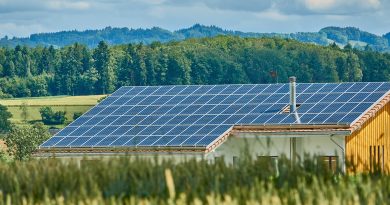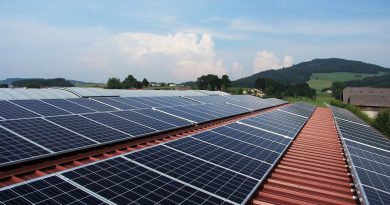How Many Solar Panels Required For 1Kw?
Determining the number of solar panels required for a 1kW solar system involves understanding various factors such as panel wattage, system efficiency, and geographic location. This guide provides a detailed explanation of these factors and includes calculations and examples to illustrate the process. Additionally, it discusses the impact of panel orientation and tilt on system performance and offers advice on considering additional factors like battery storage and energy consumption patterns.
Table of Contents
- 1 Understanding Solar Panel Wattage and System Sizing
Understanding Solar Panel Wattage and System Sizing
Solar panels come in various wattages, typically ranging from 250W to 400W per panel. The wattage of a panel indicates the amount of power it can produce under standard test conditions (STC).
| Panel Wattage | Number of Panels for 1kW System |
|---|---|
| 250W | 4 panels (1000W / 250W) |
| 300W | 3.33 panels (1000W / 300W) |
| 350W | 2.86 panels (1000W / 350W) |
| 400W | 2.5 panels (1000W / 400W) |
Since you can’t have a fraction of a panel, you would round up to the next whole number. For instance, 3.33 panels would be rounded up to 4 panels.
Calculating the Number of Panels Based on Energy Needs
To determine the number of panels required, consider your energy needs and the average sunlight hours in your location.
Example Calculation:
Assume you want a 1kW system and you are using 300W panels:
- Number of Panels: 1,000W / 300W = 3.33 (round up to 4 panels)
If you receive an average of 5 sunlight hours per day:
- Daily Energy Production: 1,000W * 5 hours = 5,000Wh or 5kWh
Optimizing Panel Placement for Maximum Sunlight Exposure
The performance of a solar panel system depends on its placement and orientation.
Key Considerations:
- Orientation: In the northern hemisphere, panels should face south to maximize exposure to sunlight.
- Tilt Angle: The tilt angle should be equal to your latitude to optimize year-round performance.
- Shading: Ensure panels are not shaded by trees, buildings, or other obstructions.
Balancing Cost and System Performance
When designing a solar panel system, it’s crucial to balance cost and performance. Higher wattage panels are more efficient and require fewer panels, but they are also more expensive.
| Panel Wattage | Cost per Panel | Total Cost for 1kW System |
|---|---|---|
| 250W | ₹15,000 | ₹60,000 |
| 300W | ₹18,000 | ₹54,000 |
| 350W | ₹21,000 | ₹63,000 |
| 400W | ₹24,000 | ₹60,000 |
The Role of Inverter Efficiency in System Output
The inverter converts the DC electricity produced by the solar panels into AC electricity used by your home. Inverter efficiency typically ranges from 95% to 98%.
Example Calculation:
If you have a 1kW system and an inverter with 95% efficiency:
- Effective Power Output: 1,000W * 0.95 = 950W
Additional Considerations for Solar Panel Installations
Beyond the basics of panel wattage and placement, other factors to consider include:
1. Battery Storage: Adding a battery system can store excess energy for use during non-sunny periods or at night.
2. Energy Consumption Patterns: Understanding your energy use can help optimize system design.
3. Future Expansion: Consider designing the system to allow for easy expansion if energy needs increase.
Conclusion
Determining the number of solar panels required for a 1kW system involves considering panel wattage, sunlight availability, orientation, and inverter efficiency. By understanding these factors and following the guidelines provided, you can design a solar panel system that meets your energy needs and maximizes performance.
Here at SolarClue®, we offer a smart, practical, and “beautiful” solution. You will be answered for all the questions related to Solar.
We provide all kinds of brands that are the Best Solar panels in India.
If you are the one who is planning for the solar power system. Don’t hesitate to contact our team!
Looking forward to empowering you with solar energy, just like hundreds of our other clients!
FAQs
1. How many solar panels do I need for a 1kW system?
It depends on the wattage of the panels. For example, with 250W panels, you would need 4 panels.
2. What factors affect the number of panels required?
Factors include panel wattage, system efficiency, geographic location, and average sunlight hours.
3. How does panel orientation impact system performance?
Panels should face south in the northern hemisphere and be tilted at an angle equal to the latitude for optimal performance.
4. What is the role of the inverter in a solar panel system?
The inverter converts DC electricity from the panels to AC electricity for home use, and its efficiency impacts the overall system output.
5. Should I consider battery storage for my solar panel system?
Yes, batteries can store excess energy for use during non-sunny periods or at night, enhancing the reliability and efficiency of the system.




